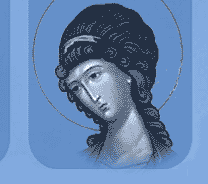Orthodox Brotherhoods in Belarus
The first
Orthodox Christian brotherhoods were created in Belarus in the late 16th
– early17th centuries, during a hard historical period marked by the repeated
attempts of the authorities of Rech Pospolita (the state which included the
Belarusian lands) to forcefully convert the local Orthodox population into Roman
Catholicism. At that time, these associations of devout laymen acted as
guardians of the Holy Orthodox Faith.
As a rule,
Orthodox brotherhoods were formed on the parish basis, their bulk consisting of
local Orthodox petty bourgeoisie and craftsmen. People of notable origin capable
of making solid donations could also be found among the brotherhoods’ members.
The tasks of
the Orthodox brotherhoods included physical protection of churches, assisting
local priests in the management of church affairs, establishing charitable
institutions and promoting the Orthodox Christian education.
Due to the
acute lack of polemical and worship literature, particular attention was also
paid to publishing religious books and opening libraries. Some of the libraries
opened by the Orthodox brotherhoods, such as the Lvov Brotherhood Library,
abounded in volumes written in the Slavic, Latin, Greek and Polish languages.
According to
Archbishop Afanasiy Martos who made research into the history of the Orthodox
brotherhoods, in the described period only in Minsk there were eight such
brotherhoods. Most active were the brotherhoods of Lvov, Vilnya (Vilnius),
Mogilev, Lutsk and Kiev (then part of the Lithuanian-Belarusian State). To some
of the brotherhoods the Patriarch of Constantinople granted the right to be his
stavropigias.
The
brotherhoods’ sources of finance consisted of entry contributions made by the
new ‘brothers’, regular mandatory and voluntary donations and, in some cases,
even fines imposed on the violators of the brotherhoods’ Conduct Code.
Another
original source of finance was the organization of duty-free mead sales once or
twice a year, on big Christian holidays. The money collected during these sales
went to the brotherhoods’ treasury while such byproduct as wax was later used in
the candle production. Part of the mead was consumed during the brotherhoods’
solemn meals on the days of celebrating the memory of their Saint patrons.
All Orthodox
brotherhoods had their hierarchy and strict discipline rules. During their
annual meetings they elected four senior brothers tasked with coordinating the
brotherhood’s activities. These senior brothers kept the brotherhood’s moneybox
while the key from it was generally held by a junior member.
Generously
taking care of beggars, the ill and the imprisoned, the members of the Orthodox
brotherhoods also rendered support to those ‘brothers’ who found themselves in a
difficult financial situation, allocating the required amount from the
brotherhood’s treasury. When a poor ‘brother’ died, the burial expenses were
fully covered by his richer fellows.
Meanwhile,
those who dared insulting their fellow-brothers or used improper rude words were
subject to severe penalties. Most strictly punished were those who revealed the
secrets of a brotherhood gatherings. According to their rank, the senior
brothers were punished more severely than the junior ones; the disobedience with
the brotherhood’s court could even entail excommunication.
Such a
demanding Conduct Code was understandable given the complex religious situation
of that time.
The
present-day realities leave no room for calm tranquility, either, as we see the
Christian lands inundated by the dirty flood of false prophets, pseudo-healers
and dangerous totalitarian cults.
In Belarus
one of the Orthodox Christian responses to these dangerous trends became the
creation of the Orthodox Brotherhood of St. Archangel Michael under the Minsk
Orthodox Eparchy.
On October 30th
1992 the newly established Brotherhood was blessed by the Metropolitan of Minsk
and Slutsk Filaret. Several days later (November 11th 1992) it was
officially registered by the authorities.
Since that
day, the main task of the new Brotherhood became the restoration of the
destroyed church of the Protection of the Holy Mother of God located in the
Minsk City Area of Kruptsy. |





